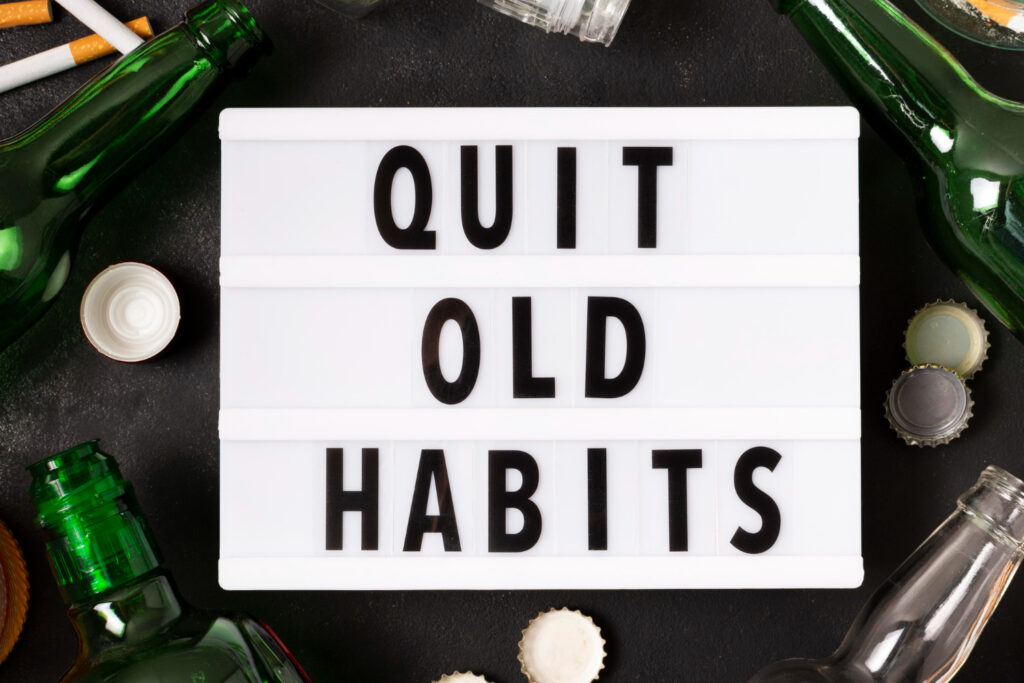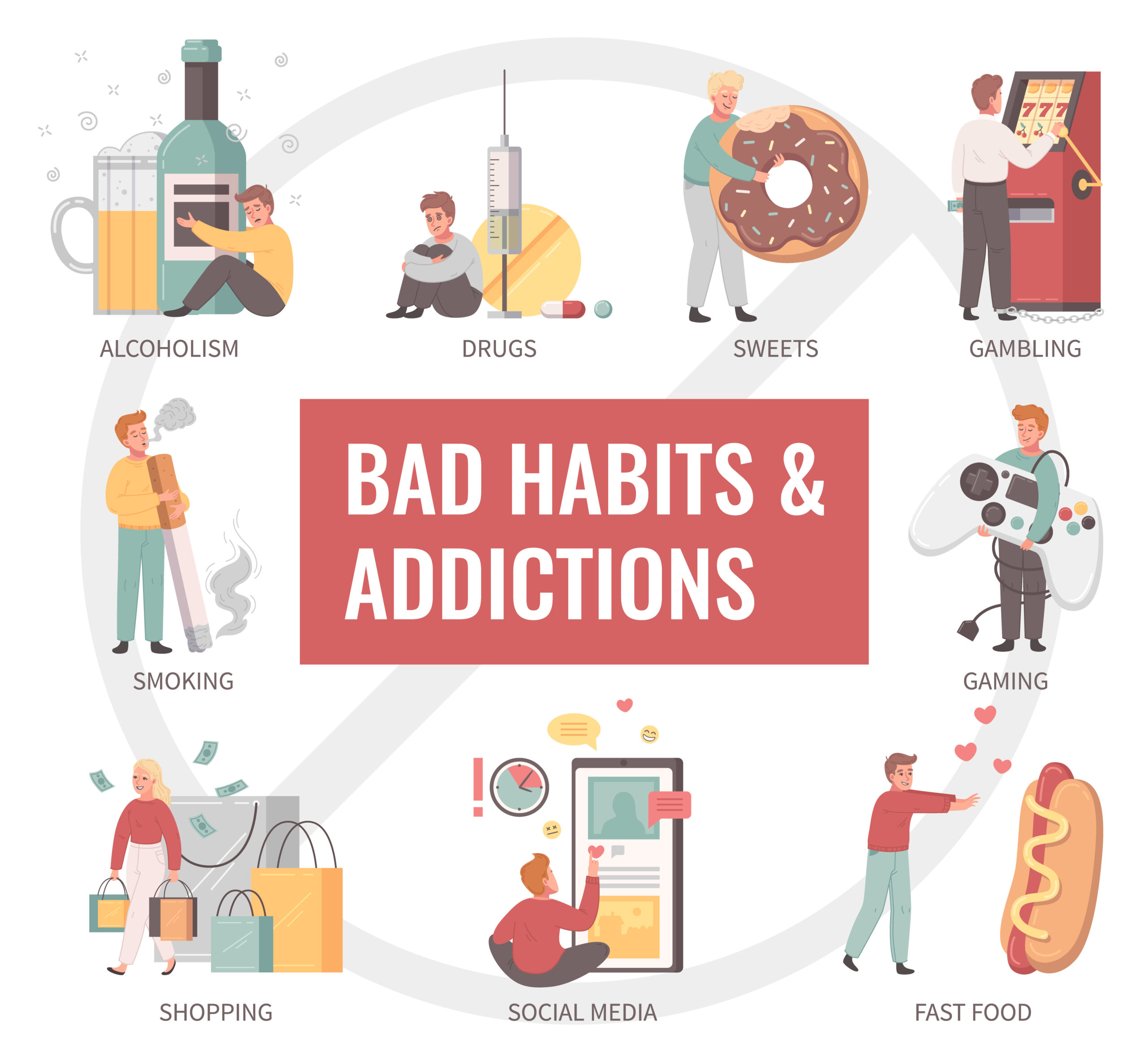Success is often seen in terms of larger goals and achievements. However, small habits play an important role in achieving those big goals. Keeping these small habits consistent naturally becomes a part of our lives and lays the foundation for bigger changes.
Small habits provide consistency and stability. These small steps help us move toward bigger goals in the long run. When we include them in our daily lives, they help us move in the right direction. For example, studying for 10 minutes a day or setting aside time for exercise can be small habits that can slowly lead to big positive changes.
Habits deeply impact our brains. They create neural pathways that motivate us to maintain and our mentality. From a psychological point of view, habits are embedded in our brains. Neural pathways create, which motivate us towards a stable routine. Habits not only change our mindset but also define our attitudes and behavior. Therefore, adopting the right habits and maintaining them consistently is an important step towards achieving success.

power of small habits
Small Habits: The Foundation of Big Success
Small habits lay the foundation for big success in our lives. With the strength of these habits, we can continuously move towards our goals. Small things gradually turn into big changes.
The Cascade Effect: One Small Habit Changes Your Whole Life
When we adopt a small habit, it helps in bringing positive changes in other areas of our life as well. This cascade effect, they say. For example, getting into the habit of waking up early every morning increases our energy and productivity, which is beneficial for both our personal and professional lives.
The 1% Rule: Small Improvements Make a Big Impact
This theory says that if we make only a 1% improvement every day, it can gradually lead to big changes. If you keep making little improvements every day, over time these small improvements will add up to a big change. Like studying or exercising for some time every day.
Compounding Effect: Big Success Through Small Steps Consecutively
compounding effect means that small efforts combined over time produce big results. This is similar to the principle of investing, where small sums of money are invested consistently to accumulate a large sum of money. Similarly, consistent adoption of small habits leads to great success.
Understanding good and bad habits
You have said very right things about good and bad habits. Let us understand this in more detail:
good habits
- regular exercise – It helps in keeping our body healthy and agile.
- Healthy food – A diet rich in nutrients improves our physical and mental health.
- Sleep on time – Good sleep relaxes our body and mind and refreshes us.
- Time management – Completing tasks on time reduces stress and increases productivity.
bad habits
- Watching TV – This not only affects our eyes, but it also wastes time.
- Eating junk food – It can lead to obesity, heart disease, and other health problems.
- Smoking – This increases the risk of serious diseases like lung cancer and heart disease.
- Waste of time – Laziness and the habit of postponing work can reduce our productivity.

Adopting good habits makes our lives healthier, happy, and successful, whereas bad habits can harm us mentally, physically, and financially. What good habits are you planning to incorporate into your lifestyle?
How are habits formed and broken?
There is a regular cycle of forming and breaking habits:
- Trigger: Any signal or indicator that starts the habit.
- Routine: An activity or behavior performed after a trigger.
- Reward: The pleasant result or satisfaction received after a routine.
To break habits, it is necessary to either break or change this cycle. For example, a bad habit can be gradually reduced by adopting a new healthy habit.
Positive vs Negative Habits
positive habit. They are those which improve the quality of our life, like regular exercise, meditation, a balanced diet, etc.
Negative habits harm us, like excessive alcohol consumption, smoking, laziness, etc.
The science of triggers, routines, and rewards
The cycle of habits works in the following way:
- Trigger: A cue to start a habit, like drinking water as soon as you wake up in the morning.
- Routine: The action we take after a trigger, like drinking water.
- Reward: Pleasant results after the routine, like feeling refreshed.
By understanding this cycle we can change our habits. If you want to change a bad habit, first identify its trigger and reward, and replace the routine with a positive action.
Small habits essential for success
Time Management and Productivity
A few small habits can be extremely effective in increasing time management and productivity.
Making the morning routine effective
A good morning routine can positively impact the entire day. Here are some suggestions:
- Getting up early: Start the day with energy and freshness.
- Exercise: Include exercise in your daily routine for a healthy body and mind.
- Meditation: Meditate to increase mental peace and concentration.
- Balanced Breakfast: Eat nutritious food to maintain energy.
Todo List and the Power of Micro-Goals
Tasks can be effectively managed using todo lists and small goals (micro-goals):
- Todo List: Making a to-do list keeps your day better organized.
- Micro-Goals: Accomplish big goals by dividing them into small tasks, which makes it easier to move towards success.
Making good use of time with the “Pomodoro Technique”
The Pomodoro Technique is an effective method of time management, allowing more focus on tasks:
- Select Task: First, choose the task that needs to be completed.
- Set a 25-minute timer: Concentrate on the task without any interruption for 25 minutes.
- Take a break: After 25 minutes, take a short break of 5 minutes.
- A long break after four seasons: After completion of four sessions, take a long break of 15-30 minutes.
mindset and self-development
1. Habit of positive thinking
Adopting the habit of positive thinking makes it easier to face challenges and achieve goals. Some ways to develop it:
- Daily Gratitude Practice: Take a few minutes every day to be grateful for the things you have.
- Positive Affirmations: Say self-motivating statements, such as “I can do it,” Come on “I’m close to my goal.”
- Challenge negative thoughts: Identify negative thoughts and replace them with positive attitudes.
2. Benefits of adopting a “Growth Mindset”
Adopting a “Growth Mindset” strengthens the belief that abilities and intelligence can increase through hard work and experience. Its benefits:
- Accepting new challenges: This mindset inspires us to embrace new challenges and opportunities.
- Willingness to learn: Mistakes develop a tendency to learn and improve oneself.
- Patience and stability: Considering failure as an opportunity to learn gives inspiration to move forward.
3. Role of self-analysis and self-awareness
Self-analysis and self-awareness are extremely important for self-development. These habits help you understand and improve yourself better:
- Daily Journaling: Writing down your thoughts, feelings, and experiences increases self-awareness.
- Periodic Self-Assessment: Review your goals, priorities, and progress.
- Take Feedback: Get honest feedback from people close to you and use it to improve.
physical and mental health
1. Small habits of exercise and yoga
- Get 30 minutes of exercise daily, such as brisk walking, jogging, or cycling.
- Doing yoga strengthens muscles and increases flexibility, so include it in your daily routine.
2. Meditation and Mindfulness
- Meditate for at least 10-15 minutes every day, which increases mental peace and concentration.
- Practice mindfulness techniques, such as eating mindfully or taking in the beauty of nature.
3. Importance of a balanced diet and adequate sleep
- Eat meals rich in fresh fruits, vegetables, whole grains, and protein.
- Reduce consumption of junk food and sugar.
- Get adequate sleep of 7-8 hours every day and maintain a regular sleep schedule.
Financial Habits and Economic Success
1. Small savings and investment habits
- Save regularly, whether it’s daily, weekly, or monthly.
- Consider different investment options like mutual funds, fixed deposits, and the stock market.
- Review your savings regularly and make changes as necessary.
2. Making a monthly budget and controlling expenses
- Prepare a monthly budget that balances income, expenses, and savings.
- Cut down on unnecessary expenses and prioritize savings.
3. Small steps of financial education
- Read financial books and articles and seek guidance from experts.
- Increase financial knowledge through online courses and webinars.
- Get basic information related to banking, investing, and insurance.
Social and professional habits
1. The Art of Effective Communication
- Use clear and confident language.
- Develop the art of listening; Listen carefully to others and try to understand.
- Increase efficiency in writing emails, messages, and business letters.
- Practice public speaking, which will increase confidence.
2. Small techniques of networking
- Use professional networking sites (like LinkedIn) and keep your profiles updated.
- Attend workshops, conferences, and networking events.
- Maintain regular contact with colleagues and industry people.
3. Discipline and professionalism
- Make a habit of completing work on time.
- Maintain discipline at the workplace and be responsible for your actions.
- Be mindful of professional attire and body language.
- Update your skills from time to time and try to learn new things.
Practical Ways to Develop Small Habits
SMART goal setting
To develop your habits effectively SMART It is important to set (SMART) goals:
- Specific: Your goal should be clear and concise.
Example: “Doing yoga for 30 minutes daily.” - Measurable: The goal should be something that can be measured, so you can track progress.
Example: “Exercising 5 days per week.” - Achievable: Goals should be realistic and practical.
Example: “Increasing your savings by 5% every month.” - Relevant: The goal should match your life and aspirations.
Example: “Meditating daily to reduce stress.” - Time-bound: There should be a specific time limit set for the goal.
Example: “To lose 5 kg in the next 3 months.”
21/90 rules for developing habits
- 21 days: To adopt any new habit and make it regular, it is necessary to practice it for at least 21 days. Maintain consistency during this time.
- 90 days: If you want to make a habit a permanent part of your life, continue it for 90 days. With this, that habit will naturally become included in your daily routine.
Habit Tracker and Feedback Loop
- Habit Tracker: Use a habit tracker to track your progress. This could be a mobile app, journal, or calendar where you can keep track of your habits.
- Feedback Loop: Review your habits regularly and create strategies for improvement. Get feedback from friends, family, or mentors and make necessary changes.
By adopting these practical methods, you can develop small but impactful habits and move your life in a positive direction.
Ways to sustain change
1. Self-assessment and commitment
- Self-evaluate your progress from time to time and see how far you have come so far.
- Remember your commitments and be accountable to your goals.
- Develop positive thinking and use self-motivation to keep yourself motivated.
2. Celebrating Small Wins
- Celebrate the achievement of your small goals, as these increase self-satisfaction and motivation.
- Give yourself small rewards to enjoy small wins, like a favorite meal, a short break, or a special activity.
- This will inspire you to move forward and it will be easier to move towards bigger goals.
3. Supportive environment to maintain motivation
- Create a supportive and inspiring environment around yourself, with family, friends, and colleagues supporting you.
- Spend time with inspiring friends and colleagues and try to learn from them.
- Be a part of support groups where there are people with similar goals who can motivate you.
conclusion
We saw in this article how small habits can bring a big change in our lives. By adopting these regularly, our lives can move forward in a positive direction. We need a lot of discipline, patience, and consistency in our lives. To maintain discipline, we should complete our good habits without any delay. It helps us move forward continuously towards our goals.
It is very important to maintain patience because changes do not happen overnight. We must take time to understand and realize our progress. Persistent effort is necessary because only with consistency do habits become stronger and our lives change permanently.
Frequently Asked Questions (FAQs)
1. How quickly can a new habit be developed?
- Developing a new habit usually takes 21 to 90 days. It may take time, but it depends on the person and the nature of the habit.
2. What if I want to adopt a new habit but am repeatedly failing?
- Analyze your failures and try to find out where the mistake is happening.
- Set small goals and gradually increase them.
- Don’t be too hard on yourself and keep trying.
3. Can small habits change life?
- Yes, even small habits can make big changes. These gradually bring stability and improvement in your life.
4. What are the most effective small habits for success?
- Regular exercise, balanced diet, sleeping on time, goal setting, meditation and mindfulness, savings and investment habits, and the art of effective communication.
5. If you want to give up a habit, what method should you adopt?
A strong support system, develop a support system, and constantly remind yourself why you want to make this change.
To give up the habit, identify the triggers) and try to eliminate them.
Old habits are new, and positive habits replace them.
Transform Your Body: The Benefits of Regular Gym Workouts
The Relationship Between Gym Workouts and Mental Health
10 Essential Tips for First-Time Gym Goers
Reclaim Your Power: Top Health and Fitness Habits to Live Your Best Life
The Ultimate Guide to Starting Your Gym Journey
8 Fitness Trends You Should Try This Year
8 Must-Have Items for Your Gym Bag
The Poetry of Motion: 10 Fitness Tips for a Body and Soul in Harmony
From Weary to Warrior: The Ultimate Guide to Thriving in Health and Fitness







